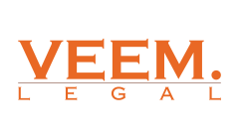News from Members
Mediation in the Netherlands as a quick and effective solution to disputes
If parties have a dispute and cannot resolve it together, the chosen path is often the way to the court. A party (claimant) starts legal proceedings, in which the other party (defendant) defends itself in the proceedings. A lawyer is required in the Netherlands for disputes above EUR 25,000 and certain types of cases. This means that the parties must engage a lawyer. That costs time and money. In addition, court proceedings require a court fee to be paid and the outcome of the proceedings is uncertain. Furthermore, it can take a year (or even longer if an appeal is lodged) until the parties have a decision from the court. Therefore, alternative dispute resolution is increasingly sought after. In the Netherlands, mediation appears to be a good alternative.
Mediation can be used as an alternative solution to disputes between companies. It does not matter whether one company is located in the Netherlands and the other company in the Czech Republic. Mediation can also be used by private individuals. This article briefly discusses mediation for companies.
What is mediation?
 With mediation you solve the problem together with the other party. An independent mediator guides the parties in this. During the mediation you sit down together and discuss all sides and backgrounds of the dispute. Together you will come up with a solution that you both agree with.
With mediation you solve the problem together with the other party. An independent mediator guides the parties in this. During the mediation you sit down together and discuss all sides and backgrounds of the dispute. Together you will come up with a solution that you both agree with.
The mediator who is specialised in the subject matter of the dispute (for example, real estate, tenders, delivery of goods, payment, etc.) supervises the discussions during the sessions. During these sessions, the mediator will look at the problem together with you in different ways. This may open up new opportunities to agree. The mediator is always neutral. He does not take a position, but examines whether a solution can be reached.
Mediation is possible before legal proceedings have started, but also if the legal proceedings have meanwhile been initiated. If the legal proceedings have meanwhile been initiated, the parties can notify the court through their lawyers that they wish to try mediation and ask the court to temporarily suspend the legal proceedings.
Why mediation?
A major advantage of mediation is that a dispute is often resolved quickly and cheaply. The solution is also more in line with the wishes of both parties. This makes the solution easier to accept for both parties and last longer. This is important, because parties often meet again and continue their business.
If the parties opt for mediation, a mediator will draw up a mediation agreement. Such a mediation agreement clearly describes, among other things, a dispute that the parties have, the costs of the mediation, confidentiality et cetera. Since in mediation the parties work together on a solution, the costs are paid by the parties. This means that each party pays half (50%) of the costs. The costs depend on the type of dispute and the mediator.
Everything discussed during the mediation is and will remain confidential. This means that parties can speak freely and what is said cannot be relied on and used against the other party in legal proceedings. That is often the reason why no lawyers are present at the mediation session as the lawyers handle the case more from the legal point of view. Of course, the parties can always consult their lawyers before or afterward if needed.
Participation in mediation is voluntary. This means that a party can stop at any time. If that is the case, the legal proceedings may be continued, and the case will again be handled through lawyers.

Practice shows that a solution is usually found fairly quickly, often even with one session. If the parties have found a solution, the mediator will draw up a settlement agreement in which the arrangements are written down. Parties can check the agreement with their lawyers and if the parties agree, the lawyers will notify the court that the legal proceedings can be withdrawn.
What does this mean for you?
Practice shows that mediation is a good alternative for resolving disputes. It does not matter whether the parties speak a different language and in which country they are established. In disputes between companies from different countries, English is often chosen as the spoken language, but another language can also be chosen. If the parties cannot speak a common language, an interpreter can even be engaged. Mediation is more flexible, it is even possible to have the sessions online via video if physical presence is not possible. If you have a dispute with another party, ask your lawyer whether mediation will be a good solution in your case. The lawyer can indicate which mediator is suitable and can monitor the case behind the scenes and help if necessary.
For more information you can contact directly Brigitte Vanatova at: vanatova@veemlegal.nl

